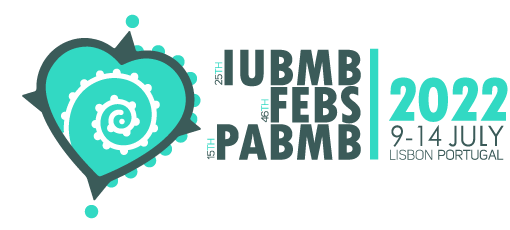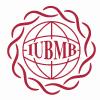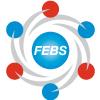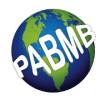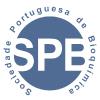
Special Sessions and Workshops
‘Special Sessions and Workshops’ at the IUBMB–FEBS–PABMB Congress will complement and extend the research-focused symposia and plenary lectures at the event. They include those organized by FEBS or IUBMB commitees on topical subjects of wide general interest to delegates – for example on career development, teaching of molecular life sciences, and 'science and society' issues.
RiboMed Satellite Conference on RNA in Disease
Tuesday July 12; 15:30–19:00; Organized independently by the session chairs in the context of the EU-funded project RiboMed. The session is open to all Congress participants.
A new promising influential area in modern biology and medicine is RNA biology. It has revolutionised molecular biology and will have profound implications for future therapies. This session will illustrate it by hosting talks by distinguished researchers on RNA in biomedical contexts. There will also be a symposium poster session and two short talks.
Chairs: Maria Carmo-Fonseca & Nuno Barbosa-Morais (iMM, Portugal)
• Keynote: Cardiac splicing as a therapeutic target, Michael Gotthardt (MDC Berlin, Germany)
• TERRA transcription-mediated telomere maintenance in telomerase-negative cancer cells, Bruno Silva (iMM, Portugal)
• A brain-in-a-dish approach to model Angelman syndrome, Simão Teixeira da Rocha (SCERG-iBB-IST, Portugal)
• Coffee break and symposium poster session
• Selected oral presentations
• Macrophage function in the regenerating heart, Filipa Simões (U. Oxford, UK)
FEBS Special Session on Research and Career Skills
Sunday July 10; 16:00–18:00; Organized by the FEBS Working Group on the Careers of Young Scientists and the FEBS Education Committee
This session will provide short talks to sharpen the tools of early-career scientists for three contrasting areas of work and life as a researcher. Participants will then be able to choose one of the three topics to explore further with interactive exercises.
Chairs: Irene Díaz Moreno, Spain; Ferhan Sağın, Turkey
• How to write an attractive review article, Paraminder Dhillon, UK
• How to prepare a proper lab book, Jason Perret, Belgium
• How to get the most out of an academic conference, Frank Michelangeli, UK
• General discussion and Q&A
• Small-group work
FEBS Special Session on Science & Society – RNA solutions to genetic and infectious diseases
Tuesday July 12; 16:00–18:00; Organized by the FEBS Science and Society Committee
The COVID-19 pandemic has catalyzed the first use in humans of vaccines based on the mRNA molecule, but the study of RNA-based vaccines had been carried out in labs for many years. Research has also been under way on the use of RNA as a therapeutic molecule to direct the synthesis of a protein that is missing or defective in genetic diseases such as cystic fibrosis and metabolic diseases, and these studies are already in clinical trials in patients. This new field of medicine has experienced unprecedented progress and there are now more than a dozen types of drugs based on the RNA molecule. Moreover, the development of nanoparticles for administration and delivery of the RNA molecule to the target tissue and inside the cell opens up a hopeful path for the prevention and treatment not only of infectious diseases and rare genetic diseases, but also for diseases as frequent as hyperlipidemia or cancer, as well as for neurodegenerative diseases, with no cure today.
Chairs: Emmanouil Fragkoulis, Greece; Enrique Viguera, Spain
• Introduction, Enrique Viguera, Spain
• The Dutch Center of RNA Therapeutics: developing mutation-specific antisense oligonucleotide therapies for patients with eye and brain diseases carrying unique mutations, Annemieke Aartsma-Rus, The Netherlands
• Applications, challenges and opportunities of RNA drugs, Lourdes R. Desviat, Spain
• Nucleic acid vaccines: a new era for RNA and DNA vaccines and immunotherapies, George Pavlakis, USA• Discussion
FEBS/IUBMB Special Session on Education – Where we go from here? Experiences, lessons learned and projections for hybrid post-COVID education
Tuesday July 12; 16:00–18:00; Organized by the FEBS and IUBMB Education Committees
It’s been two full years since COVID-19 demanded abrupt changes in teaching and research environments. Despite the ‘strangeness’ of this sudden change, the effect of the pandemic on our teaching is far from uniform or wholly negative. This session will ask us all to take a step back from the flux we have been in, and will challenge us to discuss post-COVID education. Bringing all sides of the puzzle together, the intention is to better grasp the tenor of teaching in today’s changing, and increasingly hybrid, environment.
Chairs: Lim Yang Mooi, Malaysia; Ferhan Sağın, Turkey
• The DJ-ification of education, Carlos Delgado Kloos, Spain
• Hybrid learning is here to stay and it is even more about student engagement and experiences, Tracey Kuit, Australia
• Digital strategies for blended and interdisciplinary learning, Rosemary Clyne, UK
• Q&A
FEBS/IUBMB Special Session – Unlocking SARS-CoV-2
Wednesday July 13; 16:00–18:00
Opening with an IUBMB Jubilee Award Lecture by computational chemist Professor Rommie Amaro, this session highlights the unlocking of the structure and dynamics of SARS-CoV-2. It covers structural insights into the activity and evolution of coronaviruses, the insights gained by the use of most modern tools for structure investigation, and novel approaches to designing antiviral drugs. The session will be extended with two short talks selected from submitted abstracts.
Chairs: Alexandra Newton, USA; Alexander Wlodawer. USA
• IUBMB Jubilee Award Lecture – Computational microscopy of SARS-CoV-2 in situ, Rommie E. Amaro, USA
• New lights on the structural biology of the SARS-CoV-2 – insights and perspectives at the 4th generation Synchrotron source Sirius, Ana Carolina Zeri, Brazil
• From crystallographic fragment screen to preclinical candidate: Open science discovery of SARS-CoV-2 antivirals, Daren Fearon, United Kingdom
• High-resolution interaction prediction in the CAPRI covid-19 open science initiative, Marc F. Lensink, France
• Cysteine peptidase inhibition: The way to impair SARS-CoV-2 infection and replication, Ana Mitrović, Slovenia
FEBS Special Session on Gender Issues in Science
Monday July 11; 16:00–18:00; Organized by the FEBS Working Group on Women in Science
Women and men should have the same opportunities across all science disciplines. Different careers are possible – e.g. academia, industry – but we have always to address gender issues if we want to support the quality of research and innovation. Without greater diversity, equity and inclusion (DEI), science is prevented from fulfilling its fundamental obligations to society. The session will present and discuss how we can avoid discrimination and significantly contribute to the progress of science.
Chair: Cecilia Arraiano, Portugal
• Woman and leader: to be or not to be, Mariagrazia Pizza, Italy
• Being a woman in science in the 20th century and beyond, Maria Salomé Pais, Portugal
• Women in science: what is the problem? Is the situation changing?, Pascale Cossart, France
• Gender and science in Brazil, Leda Quercia Vieira. Brazil
• Discussion
FEBS Workshop on Integration of Activities for Young Scientists (YSF, ENABLE, Junior Sections) – Bringing together young researchers across Europe and beyond
Sunday July 10; 13:15–14:15; Organized by the FEBS Working Group on the Careers of Young Scientists, the FEBS Education Committee and the FEBS Working Group on Integration.
Chairs: Irene Díaz Moreno, Spain; Ferhan Sağın, Turkey; Jerka Dumić, Croatia
Students and young researchers can be effective contributors to the work of national molecular life science Societies, in addition to benefiting from activities created for them. The impact of those activities and contributions could be even greater when young scientists collaborate across Societies and countries. FEBS offers a range of activities for early-career scientists and considers that some of those activities – specifically the FEBS Young Scientists’ Forum, the FEBS-IUBMB-ENABLE conference, and the FEBS Junior Sections initiative – could benefit from being more closely integrated.
We are keen to welcome to this workshop:
• students and young researchers keen to collaborate across Europe and beyond,
• senior staff from national Societies interested in attracting more young members and developing more activities for them,
• and other attendees with ideas on how FEBS could optimise these activities for early-career scientists.
The session will include brief introductions to the activities and then audience participation in discussions.
FEBS & IUBMB Fellowships
Monday July 11; 18:00–18:30
This short session is a chance to hear first hand from the academics overseeing the Fellowships programs at FEBS and IUBMB about the opportunities these schemes provide for financial support for research visits to other labs, and to ask questions about the application processes. Two brief introductory talks will each be followed by time for Q&A.
• The FEBS Fellowships programme: a bunch of opportunities, Alain Krol, France
• IUBMB Fellowships promoting research and education throughout the world, Ilona Concha Grabinger, Chile
